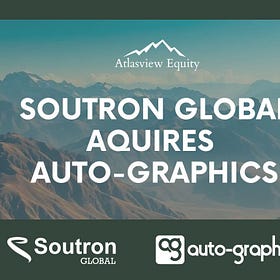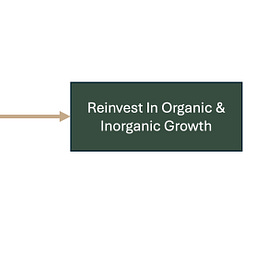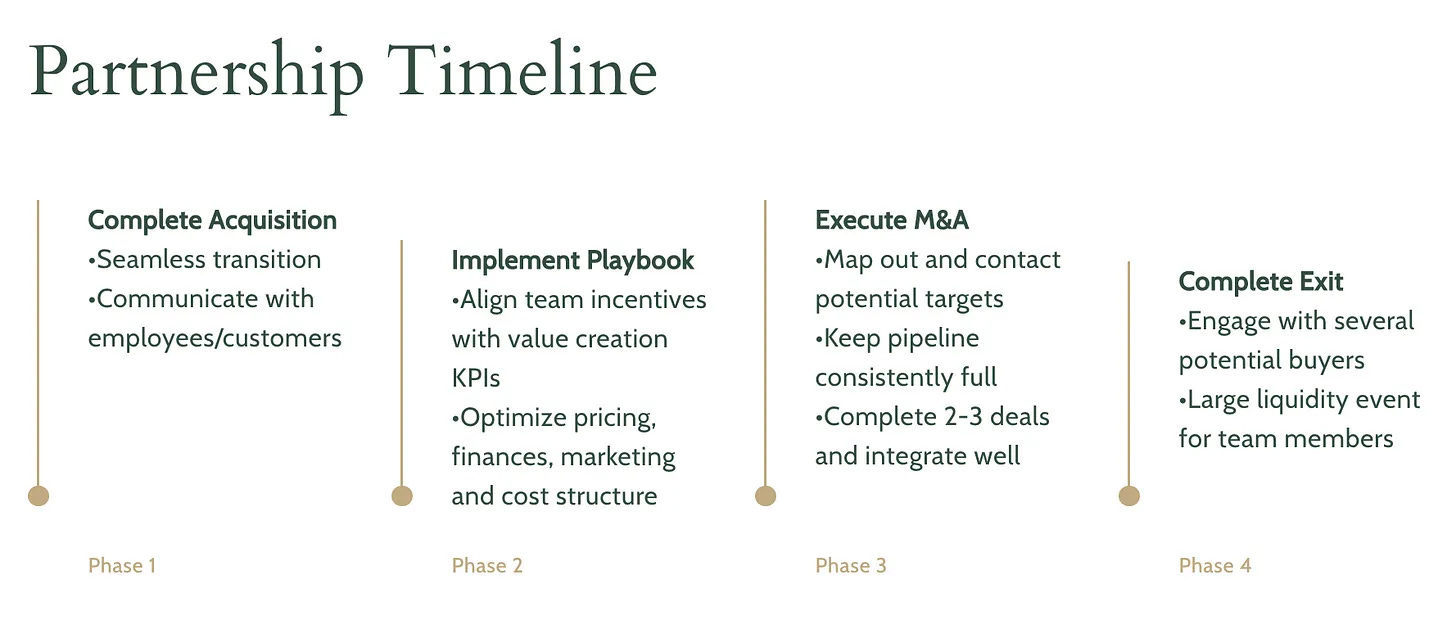Money Costs Money - How Growth Can Destroy Value
And a Relevant Clip From 1995 Berkshire Shareholder Meeting
Happy Tuesday, folks!
Thanks for joining us for another edition of Atlasview Insights. We use this newsletter to share our strategies, philosophies, experiences, and lessons we’ve learned along the way. Small bite-sized insights for business owners, dealmakers, and investors.
In this newsletter, we cover:
Have An Opportunity For Us?
Money Costs Money - How Growth Can Destroy Value
Warren Buffett on Cost of Capital
ICYMI - Popular Previous Issues
Our Deal Process
Make sure to subscribe, and if you enjoy the content, we'd appreciate it if you share it with your network.
Have An Opportunity For Us?
Before jumping into this issue, a quick reminder is that Atlasview Equity Partners is a private equity firm that acquires and builds B2B businesses in the lower middle market. For platform investments, we look for:
Business Model: vertical software, business services, value-added distributors
Business Size: minimum $1.5m EBITDA or $10m revenue
Business Profile: sticky B2B customer base
Business HQ: US & Canada
For add-on acquisitions for our portfolio companies, we have no size/geography criteria. We’re seeking add-ons in the library, archive, legal, and government niches for our portco Soutron Global and HVAC distributors for our portco PureFilters.
Whether you’re a business owner interested in working with us or an intermediary with a deal to share, please contact us!
Money Costs Money - How Growth Can Destroy Value
We all understand the obvious ways that growth can destroy value—unprofitable business models, negative gross margins, or scaling something that was never economically viable in the first place.
But even profitable growth can destroy value.
This happens when the capital invested in a growth initiative generates incremental profit that fails to exceed the business’s cost of capital. Many business owners never stop to consider this before launching new projects. Yet the cost of capital is fundamental—it’s the financial DNA of your business. It dictates the direction you take, the initiatives you pursue, and ultimately, the value you create (or destroy).
Cost of capital has two components: debt and equity. Let’s take a look at each.
Cost of Debt Capital
The cost of debt is simply the interest a company pays to borrow money. Whether it’s a term loan, line of credit, or other facility, the cost is spelled out in the loan agreement upfront.
Because the lender specifies the rate upfront, management can calculate the exact dollar outlay: an 8 percent interest rate means that every $1 million of debt will cost about $80,000 in annual interest. Any growth initiative that cannot earn more than this 8 percent hurdle will erode, rather than add to, the firm’s value.
Cost of Equity Capital
Unlike debt, equity capital may or may not have an explicit cost associated with it. However, equity capital is far more expensive than debt capital. Owners—whether founders, minority investors, or private-equity sponsors—accept the greatest risk and therefore demand a higher return than lenders do.
The expected return in private equity investments typically falls between 15 and 25 percent. If a proposed project or growth initiative cannot realistically deliver at least this level of return, it fails to compensate equity holders for the risk they take and should be rejected, regardless of whether it still looks “profitable” in simple accounting terms.
Warren Buffett on Cost of Capital
In a classic Berkshire Hathaway shareholder meeting, Warren Buffett explains how he assigns a cost to the capital he provides to his subsidiaries.
Buffett understands that his equity has a high opportunity cost. That’s why he charges his businesses a real, measurable cost of capital. It forces managers to think twice. Turning the "soft" expectation of return into a "hard" financial cost makes capital allocation more disciplined—and helps prevent capital from being misused.
Concluding Thoughts
Disciplined capital allocation starts with this question: Will the cash flows from this initiative exceed our cost of capital?
Debt sets the minimum return every dollar must meet. Equity sets the hurdle you need to clear to create value. If an initiative can't beat both, it destroys value—regardless of whether revenue grows or operating profit rises.
The best businesses rigorously evaluate every dollar of growth investment through this lens. If the math doesn’t work, they don’t chase the growth. They return the capital.
In Case You Missed It
Here are some of our previous popular issues:
Atlasview-Backed Soutron Global Completes Take Private of Auto-Graphics
Toronto, ON (March 31, 2025) - Agent Information Software, Inc. (OTCPK: AIFS), parent company of Auto-Graphics, Inc. (“Auto-Graphics”), a pioneer in State Interlibrary Loan (ILL) software systems, announced today that it has been acquired by Soutron Global, a portfolio company of Atlasview Equity Partners & Bloom Equity Partners.
Atlasview Discusses Cross-Border Deals in The Earnout Magazine
At Atlasview Equity Partners, we have extensive experience investing across borders, particularly between the US and Canada. Despite ongoing trade tensions and tariff discussions, we remain strong believers in the value of cross-border deals.
Generating Compound Returns
To generate compound returns over the long term, a business requires two key components: 1) free cash flow and 2) reinvestment opportunities. At Atlasview, when evaluating a potential platform investment, we prioritize ensuring that both components are present.
Our Process at Atlasview
We pride ourselves on our simple and transparent process. This streamlined process enables us to move quickly and get you answers quickly.
Step 1: Contact Us
Step 2: Execute NDA & Schedule Call
Step 3: Receive Offer & High-Level Terms
Step 4: Execute LOI & Complete DD
Step 5: Close Deal & Receive The Cash
Step 6: The Fun Part Begins!
Whether you’re a business owner interested in working with us, or an intermediary with a deal to share, always feel free to contact us!
About Atlasview
Atlasview Equity Partners is a founder-first private equity firm specializing in acquiring and building businesses in the lower middle market. Atlasview seeks businesses with defensible moats and multiple levers to add significant value to create an asymmetric returns profile. Atlasview works closely with management teams to execute organic and inorganic (M&A) growth initiatives to build businesses into market leaders.







